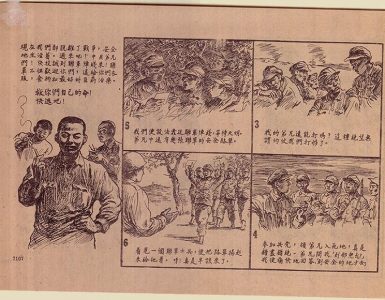We’d like to present a 10 point analysis here by Giusella Finocchiaro on Paragraph 29 of the wiretapping bill.
The wiretapping bill, still pending approval, also threatens to impact on the Internet, as is well known,.
In fact, Paragraph 29 provides for changes to the Press Law, by requiring “computer sites, including electronic versions of daily newspapers and magazines” to report and rectify information, within forty-eight hours of the request. These rectifications must be published with the same graphic characteristics, methodology of site access and visibility of the news which they refer to.
But in the chaos which has unleashed this bill on us, we need to clarify the legal environment of the proposed amendment.
10 things we can’t not know about … the right of rectification.
1) What is the right of rectification?
It is the right for people involved in the publication of images, statements or news considered to be offensive for their dignity or contrary to their truth to have their statements published free of charge.
Basically, it is the right of an individual – granted on certain conditions – to assert their truth.
2) Where or how is the news, the statement or the image published?
In newspapers or on television.
3) What are the rules of reference today?
a) The Press Law (specifically, Article. 8 of Law 47 of 1948) which states: the right of rectification is the right to publish “free of charge in a newspaper or periodical or through a press agency statements or rectifications by persons whose images have been published or to whom acts or thoughts or statements have been attributed which they consider prejudicial to their dignity or contrary to the truth, provided the statements or rectifications do not contain content that is susceptible to criminal prosecution. “
b) The Law on audiovisual media services and radio (in particular, Article n.32 quinquies of Legislative Decree no. 177, 2005) which provides: “those who consider themselves wronged in their moral or material interests (…) by transmission contrary to truth have the right to ask (…) that special rectification is transmitted, provided that this does not have content that may give rise to criminal liability. “
4) Does the right of rectification eliminate other rights?
The right of rectification is added, but does not eliminate the legal actions which one can avail oneself of in order to protect other rights (libel, damages, and so on).
5) What is the basis of the exercise of the right of rectification today?
To date, the right of rectification is provided for the press (newspapers, periodicals, press agencies) and for radio and television, which broadcast analogically or digitally.
The assumption is that the news or statement have been released by a media. It is assumed that there is an organizational structure created to produce “information”, in other words, a company dedicated to that end.
6) Is the “information website” a newspaper or a TV broadcast?
It is obvious to state that a website can be anything. Even a newspaper (such as an online newspaper). Of course not all websites are newspapers. AND THIS IS WHERE THE CONCEPTUAL ERROR LIES.
7) Is the blog a newspaper?
No. There are many types of blogs, but blogs typically do not follow the timescale of a newspaper and are not registered.
8) Are bloggers business people?
Not simply because they are bloggers.
9) What are the major risks deriving from the wiretapping law?
In addition to heavy fines (from Euro 7,746 to Euro 12,911) and to the stringent terms imposed for rectification (only forty-eight hours after the request) which are anything but easy to enforce, the danger is that, if approved, in the long run this rule will equate sites (and blogs) to newspapers, creating the basis for the application of strict rules which have originally been intended for media companies, (administratively demanding, and accompanied by penalties), for ”information websites” and maybe every electronic communication (and why not, also social networks and Twitter),.
10) So in conclusion we can state that the Internet is or must be like the Wild West?
No. Today, there are already valid legal remedies (such as defamation, damages suffered, publication of the sentence). Others can be introduced, but must be more carefully deliberated.
Freedom of expression does not (only) belong to operators in the information sector, but to everyone. Expression of thought and the information business are not the same thing.











Add comment